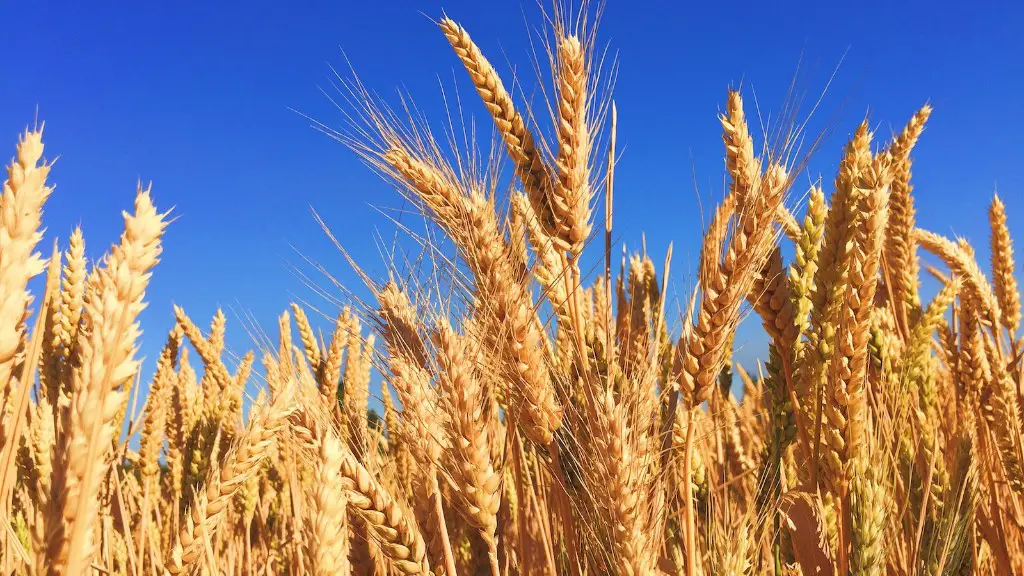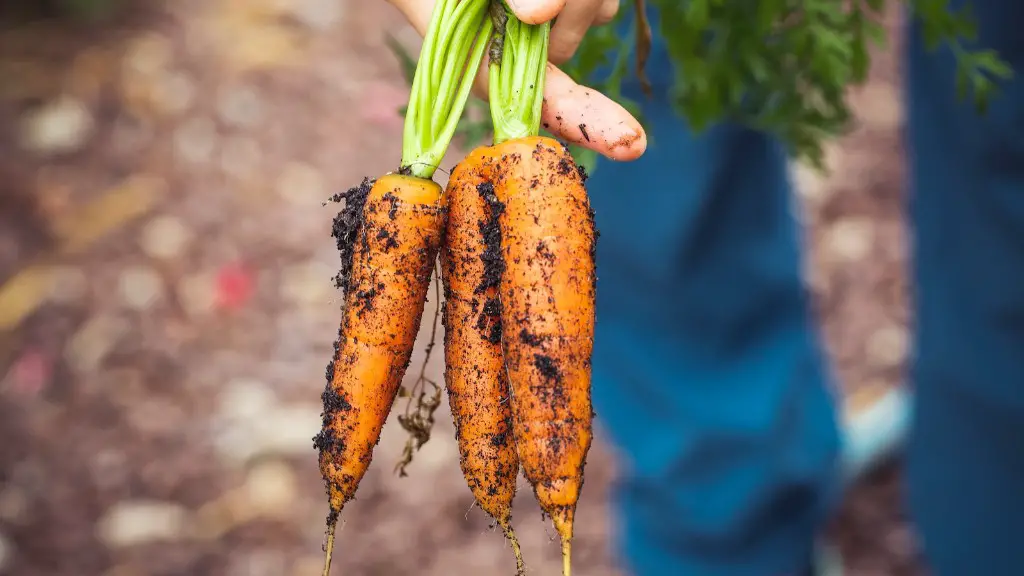Agriculture plays a vital role in our environment and has a major impact on soil. The activities involved in farming, including the cultivation of crops, grazing livestock and the use of fertilizers and pesticides, can all affect the soil. As a result of these activities, the physical structure, nutrient content, water content and microorganisms within the soil can be significantly altered.
Soil physical structure is an important factor, since it encourages aeration and aids in water retention. When farming practices damage the physical structure, it can result in increased runoff, erosion, and the release of nutrients in the soil. Cultivation activities such as tilling, plowing, and threshing also degrade the soil structure and can result in a decrease in the infiltration of water and air within the soil.
The addition of fertilizers and pesticides during agricultural processes can also have a significant impact on soil. Fertilizers add vital nutrients to the soil, including nitrogen, phosphorus, and potassium, which help to increase the fertility of the soil and increase the growth of crops. They can also cause an accumulation of nitrates, which can be harmful to the environment if left unchecked. Pesticides can help to control pests, but if used excessively, they can also negatively affect the soil. These chemicals can contaminate the soil, disrupting the natural balance of microorganisms and causing soil toxicity.
Agricultural activities can also change the water content of the soil. Over-irrigation can increase soil water content, which results in the development of anaerobiosis and destruction of soil structure. On the other hand, under-irrigation can limit the growth of crops due to a decrease in the water content of the soil.
The effects of agriculture on soil are complex and dynamic. It is important to understand and consider the various ways in which farming activities can affect soil so that we can manage the land responsibly. Well managed agricultural practices can help to maintain the health of the soil, resulting in a more sustainable environment for future generations.
Properly Utilizing Fertilizers
Fertilizers are often added to the soil during agricultural processes as a means of increasing fertility and aiding in the growth of crops. However, it is important to use these substances responsibly in order to prevent any potential damage to the soil. Fertilizers should be applied in accordance with the soil’s fertility needs, as well as the type of crop being grown. Applying too much fertilizer can lead to the accumulation of nitrates in the soil, which can have a negative effect on the environment.
Reducing Soil Pollution
The use of fertilizers, pesticides, and other chemicals during agricultural processes can cause soil pollution. This includes the contamination of soil with toxic metals, hazardous waste, and other pollutants. It can also lead to the development of antibiotic resistant bacterial species in the soil, as well as the proliferation of pathogens which can make humans and animals ill. In order to reduce the risk of soil pollution, farmers should utilize modern farming practices to reduce the amount of chemicals applied to the soil. They should also look for alternatives, such as natural pest control, to reduce the need for the use of harsh chemicals.
Managing Soil Erosion
Another way in which agricultural practices can affect soil is through soil erosion. Poor farming practices, such as over-tilling, plowing too close to rivers, and not providing enough cover crops, can lead to soil erosion. This may result in loss of fertility and reduced crop yield, as well as the release of nutrients into the environment. Thus, farmers should practice sustainable farming techniques, such as cover cropping, and utilize conservation strategies to protect the soil from erosion.
Limiting Soil Compaction
The compaction of soil can occur as a result of heavy machinery, livestock grazing, and other types of farming activities. This compaction can lead to decreased air and water infiltration into the soil, as well as a decrease in fertility. To reduce the risk of compaction, farmers should limit the amount of heavy machinery used on the soil and practice rotational grazing. Additionally, they should practice controlled tillage techniques, such as no-till and reduced tillage, to avoid unnecessary disruption of the soil.
Preserving Nutrient Content
The addition of fertilizers and other chemicals during agricultural processes can alter the nutrient content of the soil, both positively and negatively. It is important to manage the soil to preserve its nutrient content so that it remains fertile and healthy for future generations. Farmers should ensure that the nutrients that are added to the soil are in balance with the needs of the crops being grown, and use proper tactics to maintain the nutrient content of the soil.
Maintaining Soil Microorganisms
The soil contains a wide range of microorganisms which are essential for the health of the soil and the growth of plants. However, the overuse of chemicals and other farming practices can disrupt the balance of these microorganisms, resulting in soil degradation and poor crop yields. To maintain the balance of microorganisms in the soil, farmers should avoid overuse of chemicals and utilize beneficial microorganisms, such as compost, to nourish the soil. Additionally, they should practice crop rotation and reduced tillage to provide a healthy environment for the growth of soil microorganisms.


